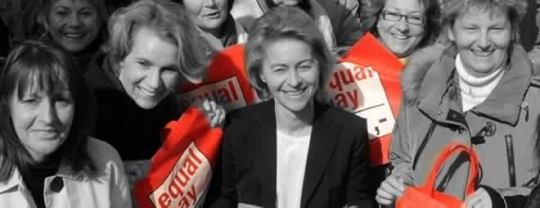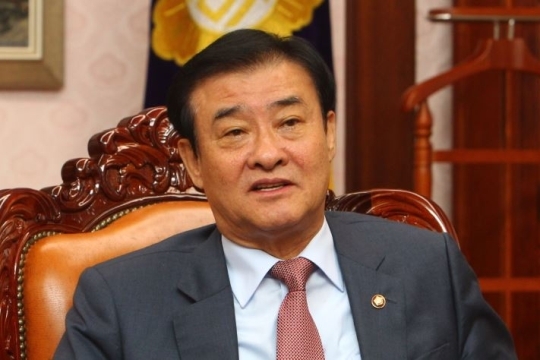125 National Assemblymen across the ruling and opposition parties support the bill together: The day will be celebrated on every fourth Monday of May, during Equal Employment Week

Kang Chang-hee, speaker of Korea's National Assembly, submitted the bill on the 4th to establish 'Equal Pay Day' on behalf of many fellow assemblymen based on the meeting result of the Consultative Committee on Future Vision for Women and Children.
As encouraging more women to enter the workforce is now being regarded as an important issue and an effective way to boost the nations competitiveness, many are keeping a close eye on the bill submitted by the Speaker to eliminate gender wage gap and ensure equal pay.
The recently raised revision bill to the "Act on Equal Employment and Support for Work-Family Reconciliation" aims to set every Monday of the fourth week of May, the Equal Employment Week, as a nationally "Equal Pay Day."
125 national assemblymen including Speaker Kang signed on the bill, which makes it a rare exception that gathered so many ruling and opposition parties' assembly members together for a single bill. It shows that the political circle recognizes the significance of equal pay for equal work in solving various gender issues including non-regular workers, women's career break, and discriminatory low wage.

Korea's gender wage gap is the highest among the OECD members at 39%, which is more than twice the OECD average at 15%. Kang said "the analysis of top 30 Korean companies' wage level and gender representation showed that 72% of those earn less than KRW 1.5 mil per month were women while only 16.5% of those who earn over 3.5 mil were women, which reveals a huge gap between the average level of wage between men and women." He added, "women are being treated unequally on so many levels and in so many aspects. Many ignore the value of equal pay for equal work, women are frequently discriminated by certain industries, have to settle for low wage and non-regular jobs, and suffer from career break. In order to solve these problems, we first have to build a social consensus on closing the gender wage gap."
Kim Eun-kyung, a consultant for the Committee and the director at Sejong Leadership Institute says "the core idea in the EU's strategy for equality between women and men 2010-2015 is to boost economic growth by enhancing gender equality. Celebration of "Equal Pay Day" is one key method to achieve this goal," adding that "it'd have a historic significance in our journey towards a gender-equal society if we can also bring the culture of celebration to Korea." Currently "Equal Pay Day" is being celebrated on Feb. 22 in Spain, Mar. 5 in the EU, Mar. 16 in Greece, Mar. 25 in Germany and Belgium, Apr. 12 in Poland, Apr. 13 in Austria, and on Apr. 15 in France.
The revision bill could come to the table thanks to the support from the experts at the Committee. Through 12 meetings during the first half of this year and a post consultation process that lasted till September, the consultants raised 75 "legislation agendas on women and children." The Committee met with the press at the National Assembly and announced that they had published an activity report titled "Future Vision for Women and Children‟ and two supplement books that include 1,447 pages.
Ahn Myeong-ok, the Committee's chair stressed "Korea ranked 111th in terms of gender inequality, which is among the worst in the world, according to the World Economic Forum," adding "today's investment in women and children's issues will serve a crucial role in tackling low birth rate and rapid aging, promoting economic growth, and solving social polarization." The report and supplement books are posted on the National Assembly's website (www.assembly.go.kr), freely available for the general public. The Committee will also complete the development of an application for viewing the documents and introduce to the public within this month.

